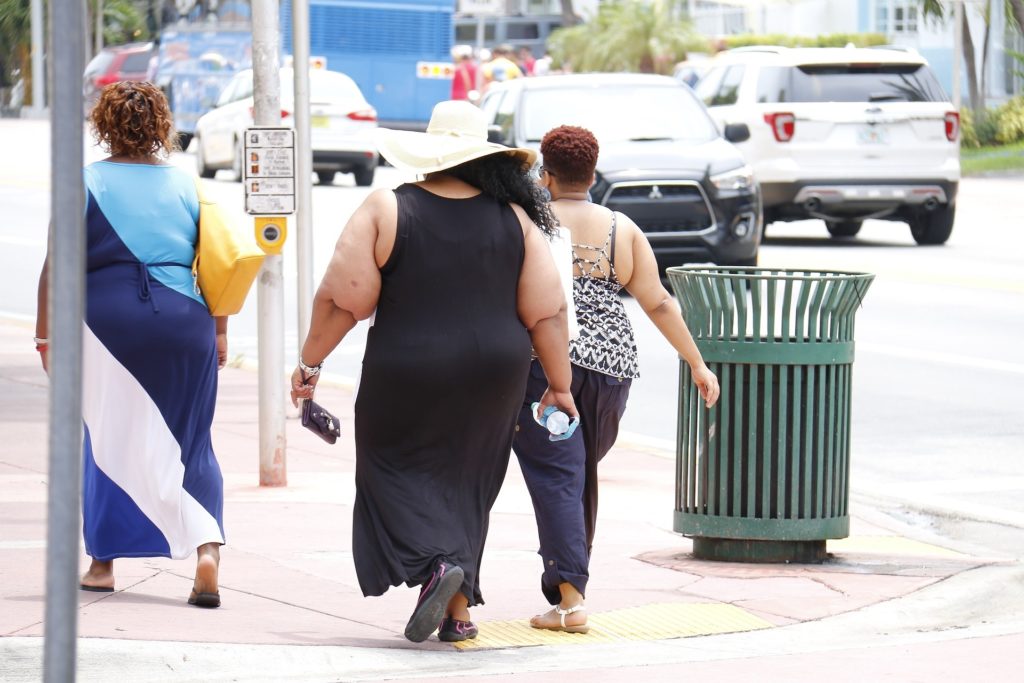- Calls to this hotline are currently being directed to Within Health, Fay or Eating Disorder Solutions
- Representatives are standing by 24/7 to help answer your questions
- All calls are confidential and HIPAA compliant
- There is no obligation or cost to call
- Eating Disorder Hope does not receive any commissions or fees dependent upon which provider you select
- Additional treatment providers are located on our directory or samhsa.gov
Binge Eating Disorder and Body Image

Even though one of the most common eating disorders in the United States, there are many stigmas associated with binge eating disorder. Binge Eating Disorder and Body Image are often tied together.
Particularly in light of the “obesity epidemic” that has swept the nation, many individuals may wrongly associate binge eating disorder with being overweight or obese, and as a result, those who struggle with this eating disorder can feel a great deal of shame about their body and self-worth.
The reality is that binge eating disorder can develop in people regardless of their weight or body type.
Understanding Binge Eating Disorder Criteria
For lack of better understanding and due to the stigma that circulates through our culture, binge eating disorder is often thought as nothing more than a tendency to “overindulge” at mealtime or a lack of self-control when it comes to food and eating.
However, those who struggle with this eating disorder understand the many complexities that contribute to this eating disorder and the multiple ways in which life can be affected – physically, emotionally, psychologically, spiritually, mentally, financially and more.
Binge eating disorder is classified as a psychiatric illness that is characterized by certain criteria, including recurrent episodes of binge eating, consuming an abnormal amount of food in a short period of time (within a two-hour time frame), feeling a lack of control over eating, experiencing feelings of guilt, disgust, and depression over binge episodes, eating in an isolated manner due to embarrassment of binge episodes, and more.
Contrary to what may be assumed by the mass media, binge eating disorder can be life threatening if left untreated and is often correlated with an increased risk of suicide and other psychiatric disorders [1].
How Binge Eating Disorder Can Affect Body Image
Binge eating disorder does not discriminate based on weight or size, and the body weight of those who struggle with this eating disorder can vary in range from normal to severe obesity.
Many individuals who are dealing with binge eating disorder may experience weight gain as a result of abnormal eating habits. Irrespective of body weight, a person with binge eating may deal with low-self esteem or disgust about his or her body.
Because a person with binge eating disorder may also be experiencing other mental disorders, such as anxiety, depression, obsessive-compulsive disorder, etc., this can interplay into the manner in which a person perceives themselves and their body.
Because binge eating disorder is a complex psychiatric illness, there are many emotional and psychological characteristics that may contribute to feelings of worthlessness, low self-esteem, poor body image, and difficulty in managing emotions.

These characteristics can be exacerbated by the condition of a society that rewards and is obsessed with thinness and rejects and stigmatizes those who might be overweight or obese.
The skewed standards of body image in our society can add to the already distorted body image of those who are dealing with poor body image, often intensifying the shame that is felt after binge episodes.
Appropriate Treatment Methods for Addressing Binge Eating Disorder
Effectively treatment binge eating disorder requires comprehensive care by professionals and eating disorder specialists.
Many individuals with binge eating disorder may assume that they are not “sick enough” for treatment or professional help, thereby keeping their struggle to themselves in shame and secret. Others may think that their issue is with food alone and attempt to diet as a way of controlling eating habits.
Approaching binge eating disorder with professional treatment and the application of evidenced-based methods can help a person recover holistically and completely.
If you or a loved one has been struggling with binge eating disorder and/or poor body image, be sure to reach out to someone you trust. Breaking the cycle of shame and stigma begins by speaking out – you are deserving of recovery and healing.
References:
[1]: “Binge Eating Disorder”, The National Eating Disorder Association, https://www.nationaleatingdisorders.org/binge-eating-disorder Accessed 6 March 2016
About the Author: Crystal is a Masters-level Registered Dietitian Nutritionist (RDN) with a specialty focus in eating disorders, maternal/child health and wellness, and intuitive eating.
Combining clinical experience with a love of social media and writing, Crystal serves where her passion to help others find recovery and healing is integrated into each part of her work.
As a Certified Intuitive Eating Counselor, Crystal has dedicated her career to helping others establish a healthy relationship with food and body through her nutrition private practice.
The opinions and views of our guest contributors are shared to provide a broad perspective of eating disorders. These are not necessarily the views of Eating Disorder Hope, but an effort to offer discussion of various issues by different concerned individuals.
We at Eating Disorder Hope understand that eating disorders result from a combination of environmental and genetic factors. If you or a loved one are suffering from an eating disorder, please know that there is hope for you, and seek immediate professional help.
Last Updated & Reviewed By: Jacquelyn Ekern, MS, LPC on March 7, 2016
Published on EatingDisorderHope.com

The EatingDisorderHope.com editorial team comprises experienced writers, editors, and medical reviewers specializing in eating disorders, treatment, and mental and behavioral health.

